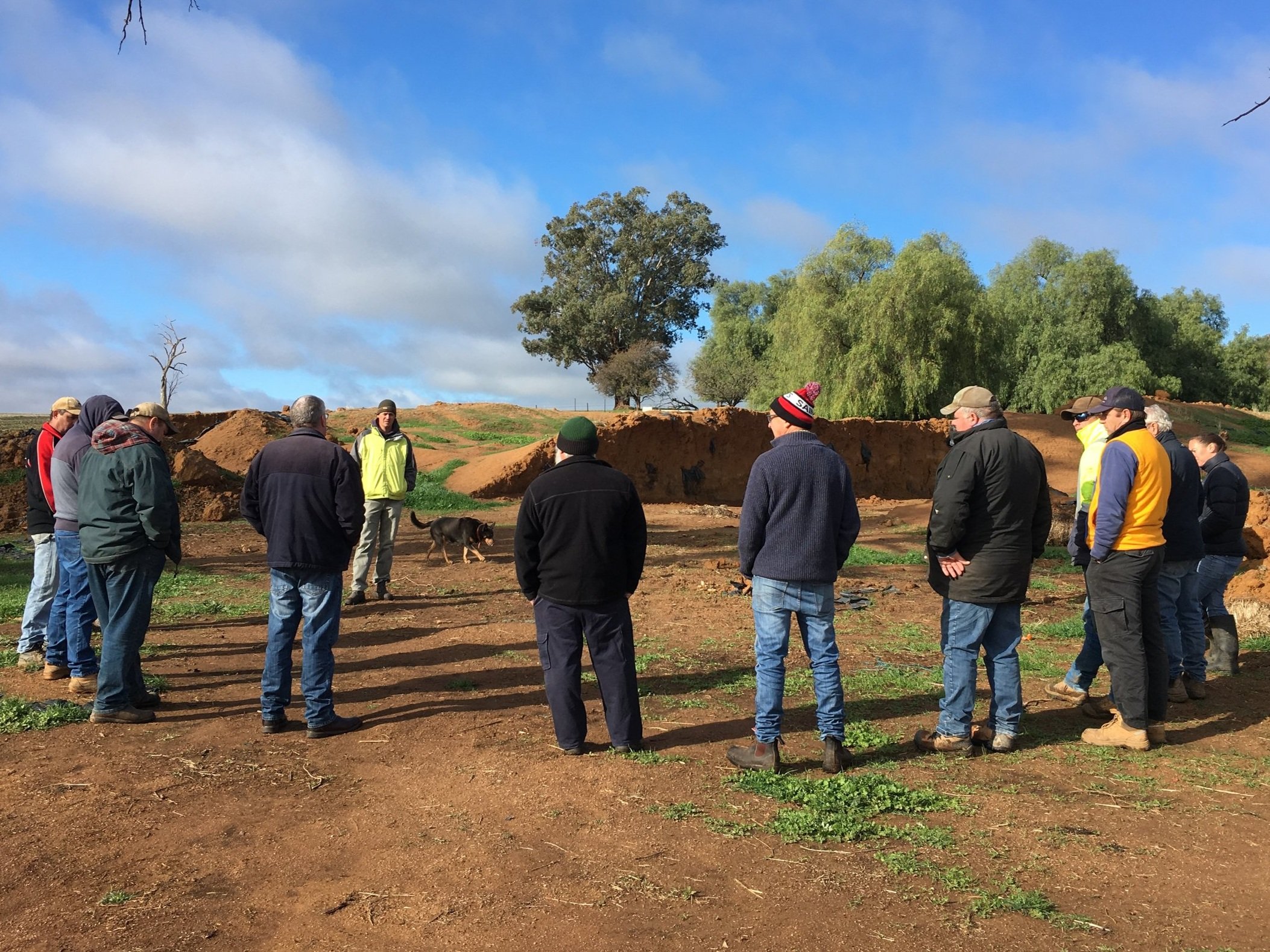West Hume Landcare: Case study
Landholder-driven discussion group supports the adoption of New Technologies, Tools & Best Management Practices for mixed farming to reduce pressures on our Natural Resources.
Between 2018-2022 West Hume Landcare delivered a series of information sessions, workshops and field trips on topics nominated by our Mixed Farming Group members. The range of topics demonstrated the diverse interests of the groups and were weaved together by the facilitator by the question posed throughout the program: How can I be more sustainable, productive and profitable on my farm?
Project launch – Planning ahead workshop
“Puts ideas in your head and gets you thinking about doing things differently”
The group environment was an important component of the program as landholders shared their successes, discussed their challenges and supported each other through practice change. Each session was hosted by a group member, enabling other participants the opportunity to “look over the back fence” and observe what was working (and what wasn’t) on local farms. The role of the facilitator was vital in creating a friendly, safe space for sharing. Our facilitator was also a local landholder which made him a trusted advisor to the group.
Facilitator Ashley Paech wraps up the learnings from our Successful Silage Workshop.
“We have been exposed to different ideas which expand thinking.”
A positive outcome of a tailored program delivered over time was the group became more comfortable sharing with each other, to the point that two of our last workshops in the series were led by landholders sharing the tools and technologies they use to implement sustainable land management practices on their properties. Farmers teaching farmers is a very powerful tool to invoke change but an important first step is to build trust and create a supportive environment for sharing.
Janelle and Ron checked out moisture and pH levels on Ron’s property.
“Great to have the landholder at the centre of sharing knowledge.”
The connections made between local landholders and experts from industry, not-for-profits and agribusiness, along with private consultants, gave the participants a gateway to the latest information on best management practices and the tools, technologies and techniques available to support adoption.
James shares his journey from using Merino Flock DNA profile technology to inform his breeding decisions and the use of electronic identification tags to support actions to speed up breeding goals. Using these tools and technologies supported James to make productive and profitable decisions for his farm business.
“Incredibly valuable to hear other’s experiences and know you are not alone.”
This project was supported by the National Landcare Program: Smart Farms Small Grants – an Australian Government initiative.





